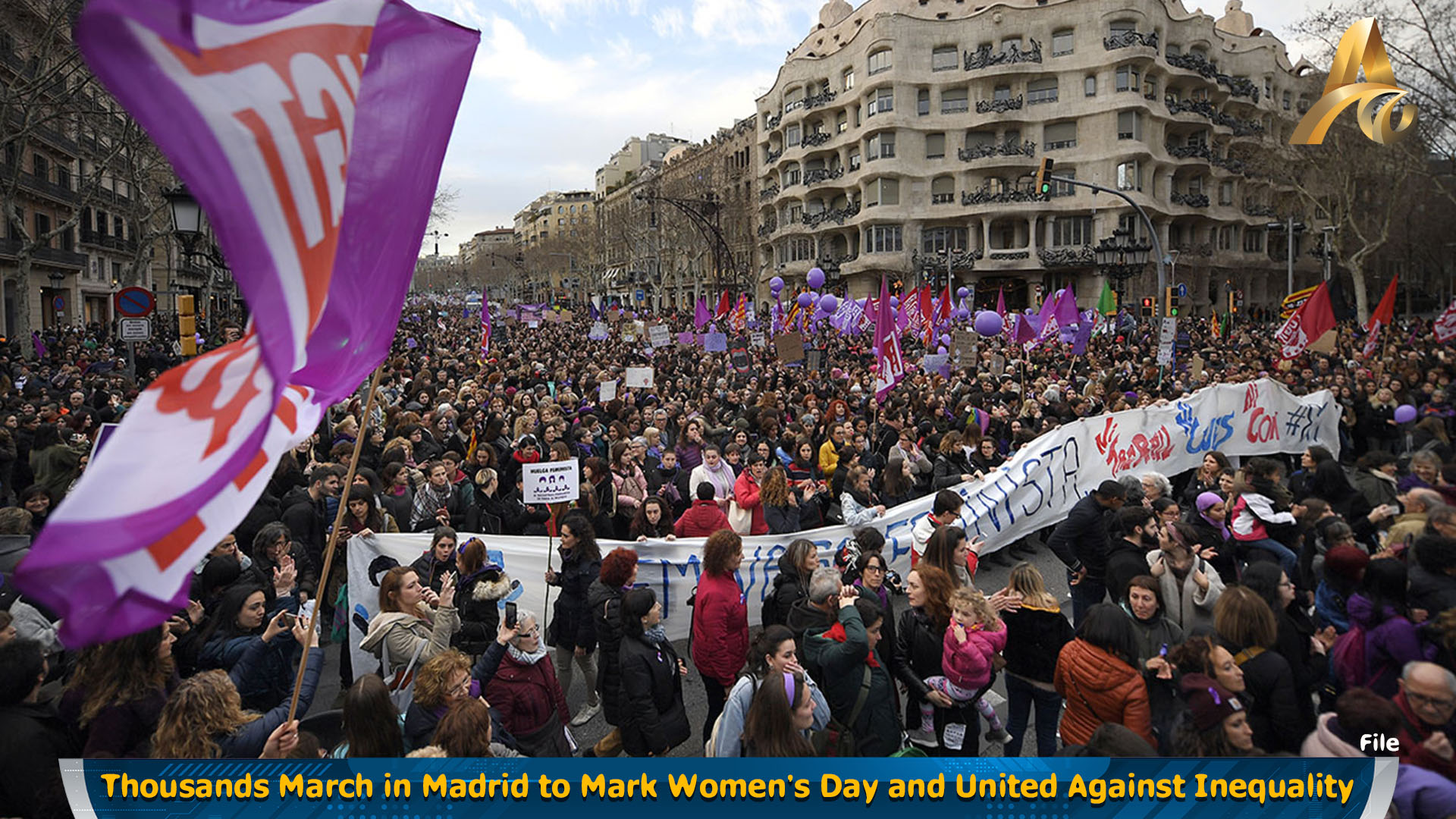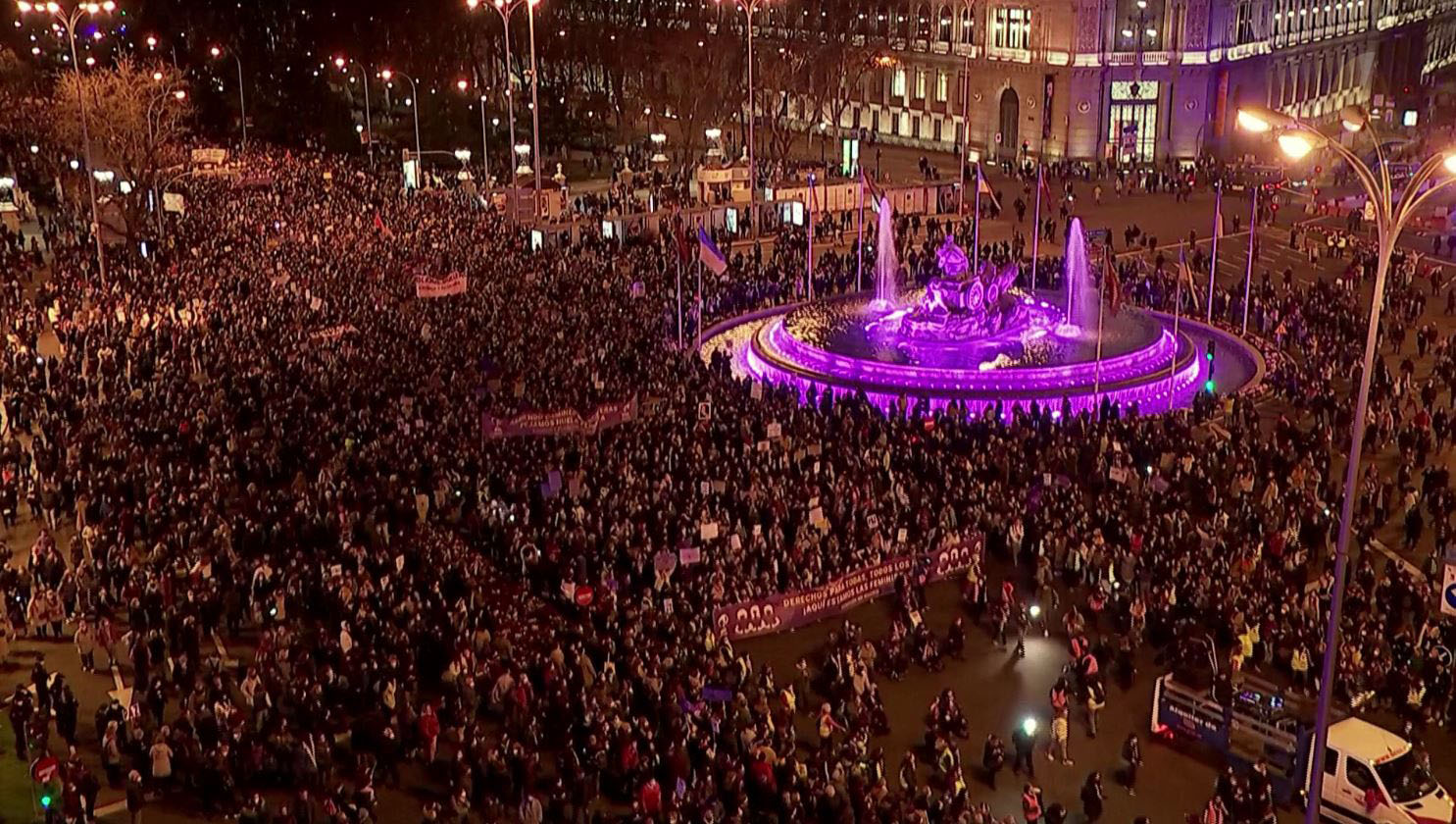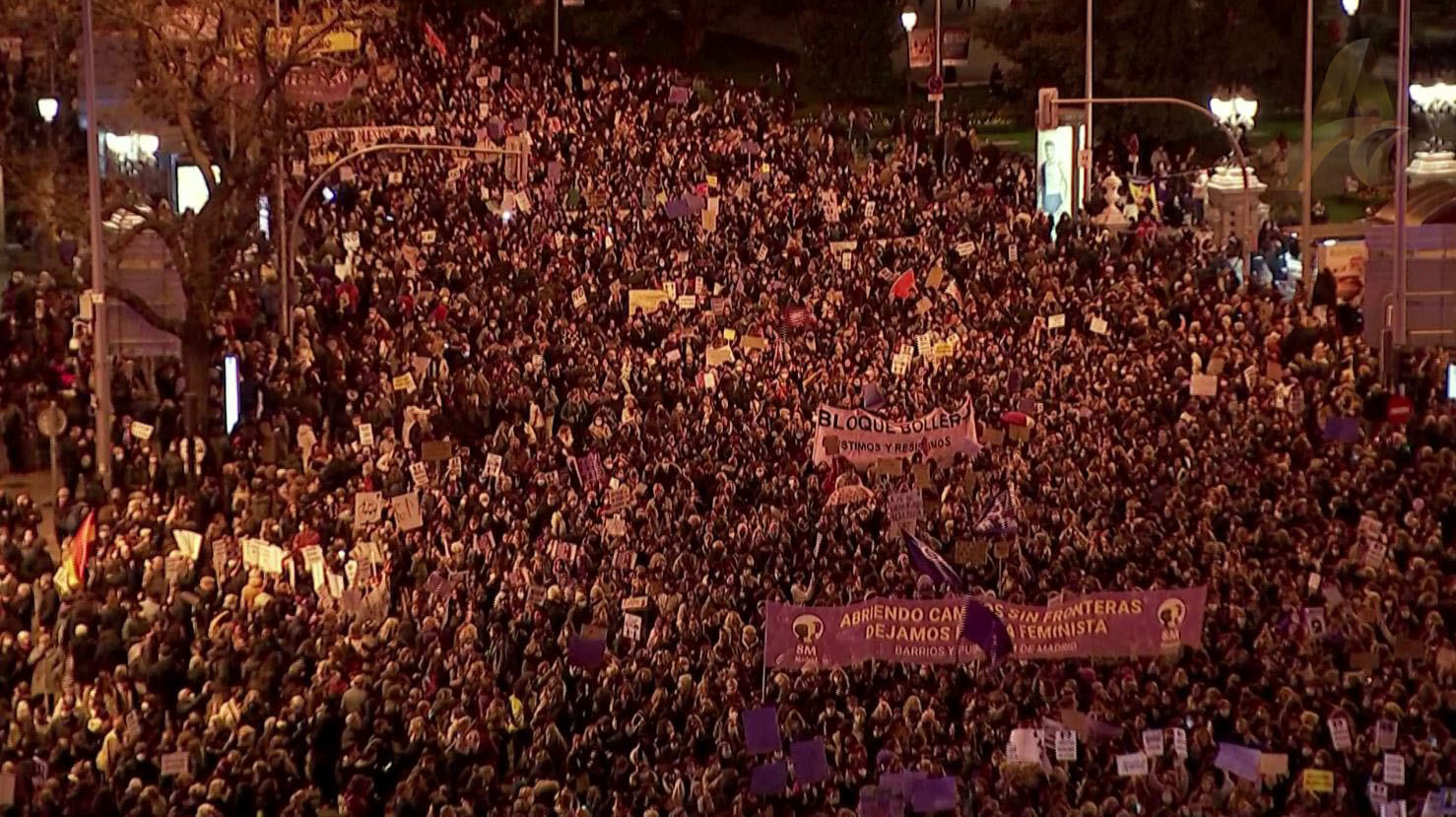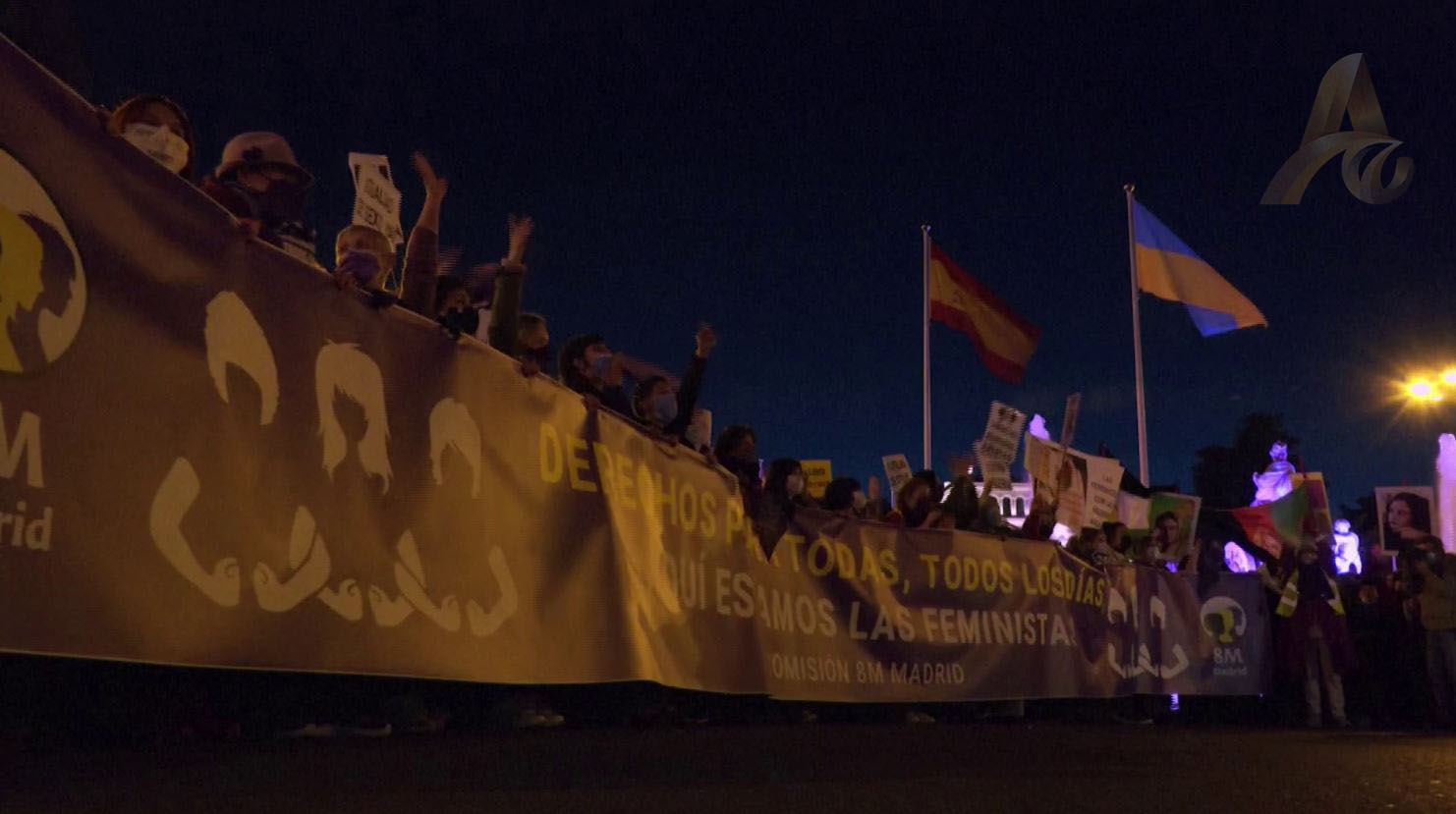INTERNATIONAL: Thousands of Madrid residents have marched on Tuesday ,March 8, against gender inequality to mark International Women's Day, despite concerns the gatherings could aid the spread of coronavirus.
Chanting and holding placards, attendees have said they marched to let women know that everybody must be “united against inequality.”
“Things are improving, but there is still a long way to go before men and women are treated equally,” said protester Natalia Martin.
Some protesters have also showed signs against Russian invasion in Ukraine reading “more feminism equals less war.”
Authorities have said around 50,000 people attended the protest, while organisers have claimed 100,000 have marched through central Madrid and ended up at Colon Square.
Traditional marches and protests to mark International Women’s Day have resumed across Spain this year after last year’s ban on marches due to COVID.
The European Commission on Tuesday have proposed European Union-wide rules to fight violence against women, to protect and support victims and to prevent such violence in the first place.
Unveiling its plan on International Women's Day, the EU's executive has proposed that, across the bloc's 27 countries, rape would be criminalised, based purely on the lack of consent and irrespective of whether force and threats were used.
It also proposed criminalising female genital mutilation, cyber-stalking, non-consensual sharing of intimate images, cyber-harassment and cyber-incitement to hatred or violence.
According to European Commission data, one in three women in the EU has experienced some form of violence, and while the offences are already crimes in the vast majority of member states, there are gaps in national laws of some countries and legal frameworks differ.

























